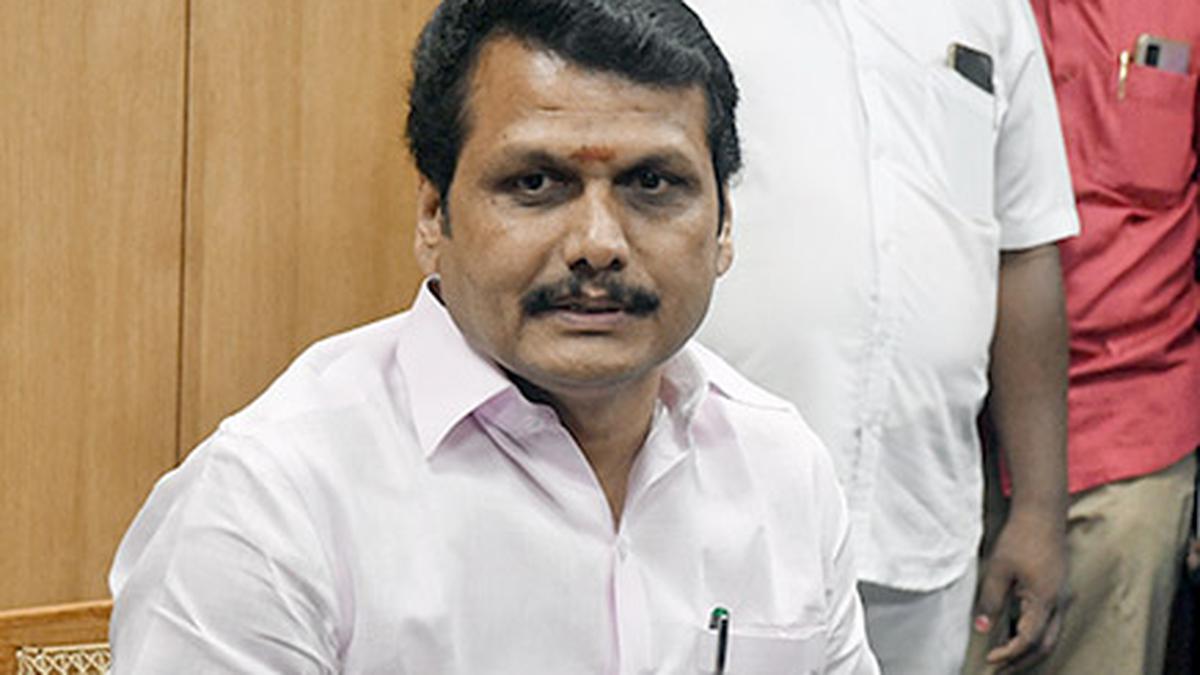
Third judge decides to first tabulate differences of opinion between two judges who delivered split verdict in Senthilbalaji case
The Hindu
Justice C.V. Karthikeyan, the third judge named by Madras High Court Chief Justice S.V. Gangapurwala to hear a habeas corpus petition filed by arrested Minister V. Senthilbalaji’s wife following a split verdict by two judges of a Division Bench, on Thursday decided to first list down the differences of opinion between the two judges before proceeding with the hearing.
Justice C.V. Karthikeyan, the third judge named by Madras High Court Chief Justice S.V. Gangapurwala to hear a habeas corpus petition filed by arrested Minister V. Senthilbalaji’s wife following a split verdict by two judges of a Division Bench, on Thursday decided to first list down the differences of opinion between the two judges before proceeding with the hearing.
After taking up the case for a formal hearing on Thursday, the judge told Solicitor General Tushar Mehta appearing for the Directorate of Enforcement (ED) and Senior Counsel N.R. Elango, representing the petitioner Megala, that clause 36 of the Letters Patent requires the differing judges to list out the points of differences before referring the matter to the third judge.
Since such a procedure had not been followed in the present case, Justice Karthikeyan decided to take a cue from a 2007 judgement of the High Court in All India Anna Dravida Munnetra Kazhagam versus State Election Commission wherein it was held that the third judge could also frame the points of differences before proceeding with the hearing of the case.
Immediately, Mr. Mehta informed the court that the ED had already prepared a tabulation of the points of differences between the two judges. Justice Karthikeyan asked the Solicitor General to share the tabulation with Mr. Elango and said the court would finally frame a list of the points of differences on Friday after hearing both sides.
When Mr. Elango urged the court to commence the hearing from July 11 in order to accommodate Senior Counsel Kapil Sibal, Mr. Mehta expressed some urgency in the case and requested the court to take it up for hearing as early as possible. To this, Justice Karthikeyan said the hearing could begin on Saturday itself subject to permission from the Chief Justice.
Pointing out that the Supreme Court too had insisted on an early decision in the case, he asked Mr. Elango to find out by Friday the availability of Mr. Sibal for the proposed hearing on Saturday. The judge also insisted on perusing the case diary during the hearing since he was intrigued with the precision with which the ED had noted down the time of arrest as 1:39 a.m. on July 14.
When Mr. Mehta told the court that the ED does not call it as ‘case diary’ but only as records of the case, Mr. Elango, in a lighter vein, retorted that the non use of the nomenclature, generally used by the local police, by itself showed that the ED does not have the powers of the police and therefore it could not subject the Minister to custodial interrogation.











